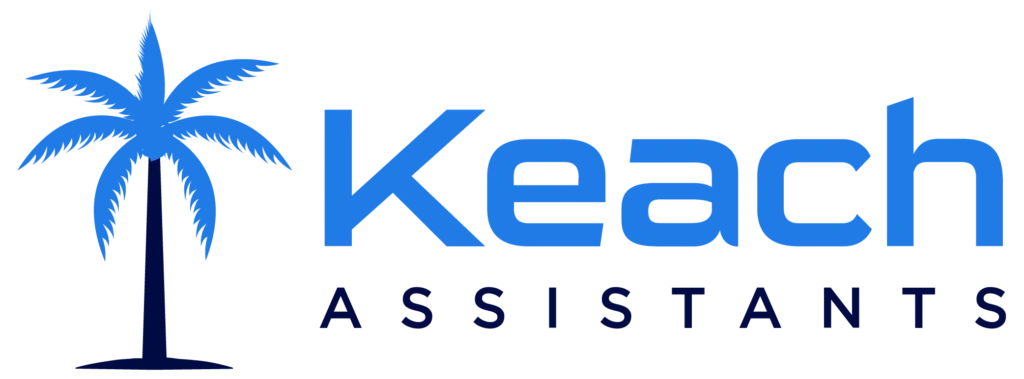The world of real estate looks different in the year 2025. The ability to operate remotely, flexible work patterns, and amrter delegation strategies are no longer options for successful realtors. The use of a real estate virtual assistant has become the key to serving more clients without feeling burned out.
Whether it is a real estate property manager VA, a realtor assistant, or a real estate lead generator VA, each type has its crucial role in helping agents to grow faster in the highly demanding market.
Real Estate Virtual Assistants 2025
Virtual assistants for real estate agents now do more than schedule work and manage correspondence. Modern virtual assistants are informed, talented, and experienced in real estate, client engagement, and lead flow. They can manage all agency business needs.
The Business Research Company also states that the global virtual assistant market will grow from USD 6.37 billion in 2024 to USD 8.11 billion in 2025, reflecting a significant increase in the use of remote knowledge. Again, Business Research Insights forecasts that the market for real estate virtual assistant services will grow at 8.5 percent per annum, reaching almost USD 0.75 billion by 2032.
These figures indicate that realtors are changing how they assemble their teams, preferring people who can work remotely and offer flexibility and cost savings. Many real estate firms claim to save up to 78 percent by using talented Virtual Assistants instead of hiring them in-house. For teams that may use onboarding or team integration, KeachAgency’s onboarding page can provide access to these features.
Begin Scaling Smarter
Ready to free up more time and boost your client base? Consider hiring a real estate virtual assistant.
Key Roles that Fuel Growth
Realtor Assistant
Every busy realtor assistant has found themselves overwhelmed by paperwork. Whether it’s replying to emails, updating the CRM, confirming viewings, or managing listings. This is where having a realtor assistant comes in handy. They will take care of the small, important things that occupy your time, allowing you to spend it on what’s important.
If an assistant manages daily scheduling and client follow-throughs, how many more meetings could you schedule every week? The average realtor estimates that they can cut 15 to 20 hours from their weekly routine by assigning routine office tasks to a virtual assistant. This is almost a full day that could otherwise be used to generate income.
Property Management VA
Real estate investing requires constant tenant queries, rent reminders, upkeep, and inspections. Using a property management virtual assistant ensures smooth background operations. Property owners may track payments, services, communications, and updates with the virtual assistant.
Using property management tools like Buildium or AppFolio, your VA can centralize communication and maintenance requests in one place. This creates a smoother experience for both tenants and landlords, helping improve occupancy rates and tenant satisfaction. For property managers handling 50+ units, having a VA can feel like doubling your capacity without doubling your workload.
Real Estate Lead Generation VA
If you’ve ever found yourself struggling to keep leads in your pipeline, then a real estate lead generator VA could well be the best investment you’ve ever made. The simple fact is, lead generators spend every minute of every day researching, vetting, and nurturing leads, which is exactly what your growing real estate company needs.
The average lead-generation VA can generate 8 to 10 qualified leads per week. This implies that there will be more properties for sale, more viewings, and more closings without requiring the agent to spend numerous nights searching for leads.
Wouldn’t it be easier to wake up every morning to a list of fresh leads waiting for you in your email inbox? This, my friend, is the level of predictability that a professional lead generation virtual assistant can provide for your business.
Simplify Your Property Management
Include a professional property management VA and keep all your rentals, tenants, and maintenance items highly organized.
How Virtual Assistants Help Realtors Scale Faster
Scaling is not only about putting in more effort; it’s also about putting in better effort. This is where a real estate virtual assistant steps in and helps. Agents who assign the right tasks tend to scale faster by allocating time to activities that can lead to closed deals, client nurturing, and new partnerships. This can be divided into three major parts:
1. Time Leverage
This is a virtual realtor VA that can perform up to 60% of your repetitive tasks, from email communication to scheduling viewings, listing updates, and CRM. Consider how many hours could be saved each week on client meetings and new listing analysis.
2. Process Automation
With a realtor assistant handling your workflows, your business will become predictable. This is because an assistant will help create systems for follow-through, entry, and communication, making it impossible for anything to fall through the cracks. Although automation software assists, having a human virtual assistant will ensure that every communication from each client has a personalized touch.
3. Revenue Acceleration
When you delegate operations to your real estate virtual assistant, you get to spend more time on income-driven activities. The result? Quick scaling, improved conversion rates, and enhanced partnerships. Many agents notice that by having a virtual assistant, they can close up to 25% more deals in a quarter by focusing on their clientele rather than operations.
| Before Hiring a VA | After Hiring a VA |
| 40% of time spent on admin work | 80% of time focused on clients |
| Missed follow-ups | Automated reminders and tracking |
| Limited lead pipeline | Consistent flow of qualified leads |
| Overworked team | Balanced workload and happier agents |
Hiring the Right Real Estate Virtual Assistant
Hiring the right VA isn’t just an issue of where to find help, it’s also an issue of what’s the right fit for your goals. This is a quick checklist for you:
- Experience: Look for candidates who’ve worked in real estate, understand CRMs, and can manage MLS listings.
- Tools Knowledge: The top VAs will know how to use tools such as HubSpot, Trello, or Follow Up Boss.
- Communication Skills: It is important to provide a daily update.
- Time Zone Compatibility: Coordinate staff working times so critical activities can occur in ‘real time’.
- KPI Reporting: Establish goals such as response time, lead conversion, or listing updates right from day one.
To make swure about smooth onboarding, use management apps like ‘Asana,’ ‘Slack,’ or ‘Trello.’ These apps will enable you to assign tasks and communicate effectively with your real estate virtual assistant.
COST INSIGHT
Hiring a full-time in-house assistant will cost $45,000 to $60,000 per year in the U.S., whereas the average cost of an expert virtual assistant will only be 30-40% of that amount. This implies that the difference created by using a virtual assistant will result in a higher ROI without compromising on quality.
Trends for 2025 in Real Estate VA Services
No more pursuing leads by hand. Let a real estate virtual assistance brings qualified leads right to your email every week. The year 2025 will redefine the future for real estate services, and real estate virtual assistants are right in the middle of it all.
AI Integration and Smart Workflows
Today, many VAs use AI to enter data, compare properties, and follow-up. Processing is faster and more precise with integration.
CRM Automation for Realtors
From categorizing prospects to setting alarms, virtual assistants are becoming CRM experts. This greatly decreases missed opportunities and streamlines client processes.
Niche Specialization
We’re also seeing a rise in niche-trained VAs:
- Property management Virtual Assistants for Airbnb properties or rentals.
- The lead generation Virtual Assistants were exclusive for real estate lead conversion.
- Realtor assistants acting as loyal partners for top-performing agents.
Collectively, these trends enable VAs to shift from merely task-completion specialists to growth-oriented collaborators that fully understand your business, your clients, and your objectives.
Final Thoughts
Scaling in real estate does not always translate to expand your staff and investing in more marketing. Sometimes, it’s all about setting up the right support system around you. With the real estate virtual assistant, your world will surely change, from having more time in your hands to ensuring that your leads remain active, and opportunities don’t pass you by.
Whether it’s your property management virtual assistant, realtor assistant, or real estate lead generator virtual assistant, each helps contribute to scaling for you. Ready to grow your VA team and start 2025 strong?
FAQ’s
1- What does Real estate virtual assistants do?
Real estate virtual assistants help agents manage listings, scheduling, CRMs, and customer questions. To let you sell homes instead of doing administrative labor, they handle follow-ups, research, and marketing.
2- How can property management VAs help realtors?
Property management VAs work with tenants, track rent payments, schedule maintenance, and provide property reports. They make managing several properties easier, keeping renters satisfied and operations on schedule.
3- How might a realtor assistant increase sales productivity?
A realtor assistant schedules appointments, confirms showings, and sends follow-up emails. With such responsibilities done, agents may spend more time with customers, improving closing rates and monthly sales.
4- What is a real estate lead generation VA?
Real estate lead generation VAs establish and maintain client pipelines. They find buyers, send outreach messages, nurture prospects, and refresh your database. This weekly effort grows your business with fresh prospects.









